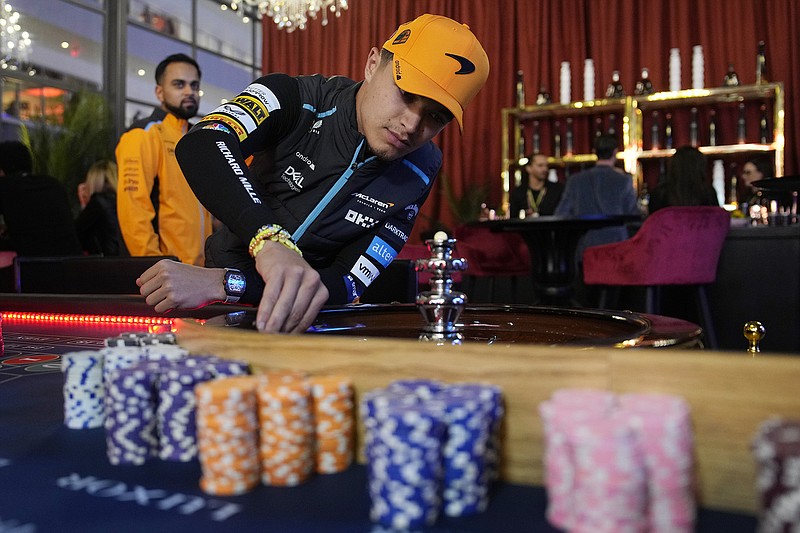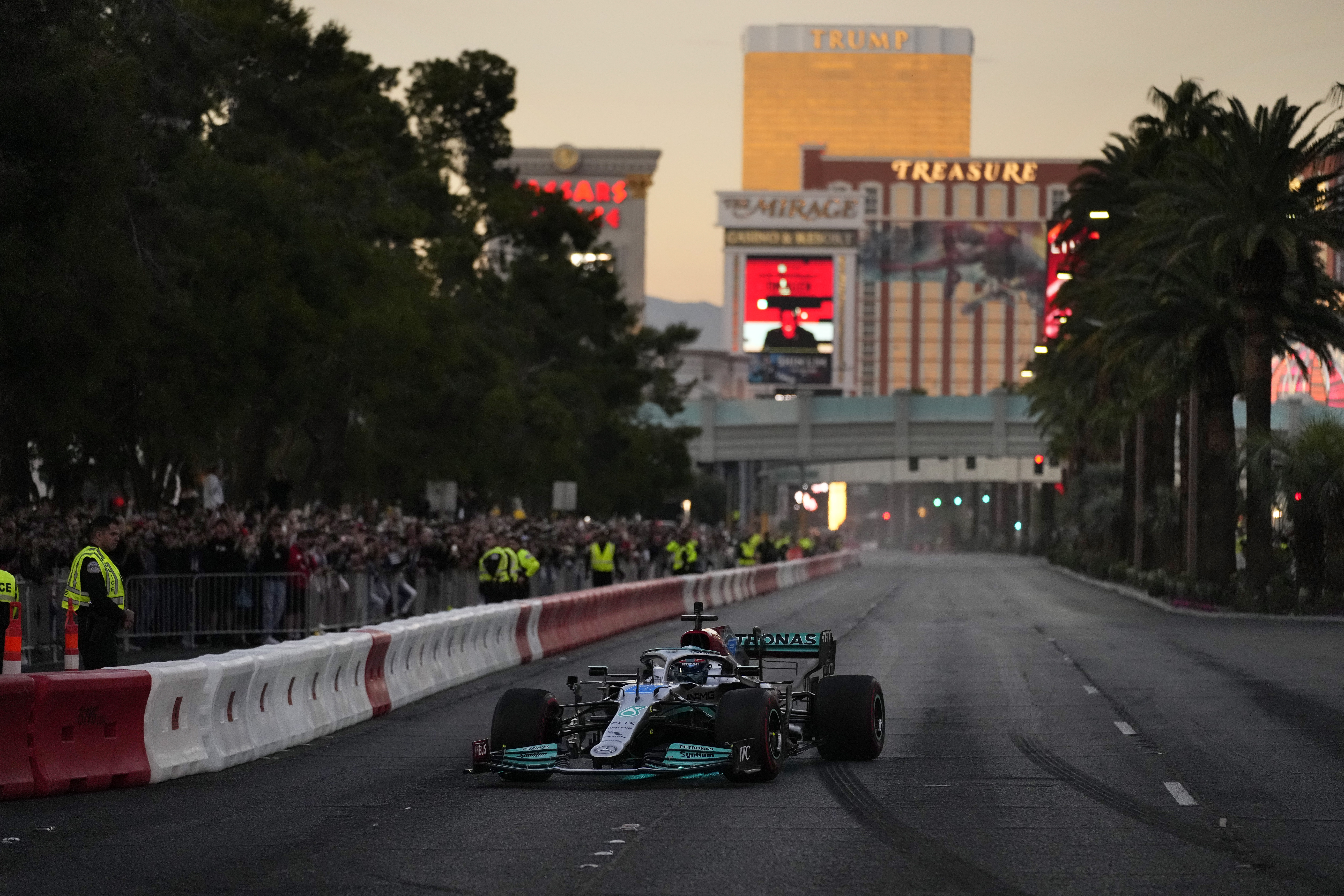LAS VEGAS — When the world's best drivers speed down the Strip this weekend for a new Formula One race, it will mark the latest step in the evolution of Las Vegas as an international sports city.
The transition from a town that no professional leagues would touch to a global sports destination has its roots in the 1950s, when Las Vegas began hosting major boxing matches that attracted fans and media from all over the world. In more recent years, Las Vegas has added NHL and NFL franchises with international appeal and hosted more international competitions, including soccer, rugby and now F1, the globe-trotting open-wheel series.
"Recent years have seen a perception shift from LV being seen as a party and gambling city where anything goes, to a more well-rounded destination," Jason Doyle, sport management discipline advisor at Australia's Griffith University, wrote in an email. "It seems this has been a deliberate move and sport has played a central role in that. The entry of the (NHL's) Golden Knights and later acquisition of the Raiders (of the NFL) have put Vegas on the map in this sense and lent credibility to the city's new positioning."
It's very clear this is a much different Las Vegas from the one half a century ago that relied almost exclusively on casino revenue, and where resort operators offered prime rib at hamburger prices just to get customers in the door to gamble.
The first signs the area could become known for sporting events came in 1955, when boxing champion Archie Moore beat Nino Valdes by decision. The sport began to truly take off in Las Vegas in 1960, and over time the city became known as the "Boxing Capital of the World."
"I think that was a real starting point for putting Las Vegas on the map," said Steve Hill, CEO and president of the Las Vegas Convention and Visitors Authority. "It was a place where you could come and not only watch the match, but watch boxers train for a few weeks. That excitement would build toward the match on the weekend."
Muhammad Ali and Sugar Ray Leonard further helped raise the city's profile, but from a sports perspective it was limited largely to boxing and the UNLV men's basketball program under coach Jerry Tarkanian. The Rebels appeared in a quartet of NCAA tournament Final Fours and won the 1990 national championship.
As the metropolitan population continued to grow, expanding to 1 million in the 1990s to around 2.3 million now, so did the idea of Las Vegas turning into a major sports city. It's currently home to three professional franchises, and Major League Baseball team owners are set to vote Thursday on the proposed relocation of the Oakland Athletics to Las Vegas. In the past 13 months, the Knights have won the Stanley Cup and the Aces have won back-to-back WNBA championships.
The arrival of Formula One puts an even bigger international stamp on Las Vegas because the series is more popular globally, and that ties into the city's strategy of attracting more visitors from abroad. Las Vegas has nonstop flights to the United Kingdom, Germany and South Korea among other countries, but the city is constantly looking for ways to become even more attractive to foreign tourists.
An F1 race is one way to do that. The Super Bowl, which will be played in Las Vegas in February, is another.
"Between Formula One and the Super Bowl, you can't find events that bring more focus to a city than those," Hill said. "Because F1 is outside, because it is going to be running down Las Vegas Boulevard, just from a pure spotlight marketing standpoint, you can't replicate that."
Maybe the race Saturday night — the first of a scheduled 10-year deal in Las Vegas — will exceed expectations and overshadow what has been a rocky start. Residents have become frustrated with construction that has caused significant traffic delays, and some tourists were put off by high ticket and hotel prices.
A failure likely wouldn't affect the city's ability to draw more high-profile international events, but it's still not the kind of publicity that Las Vegas wants, especially as it tries to lure other events.
There are two notable events that probably won't ever come here.
Las Vegas did not bid on the 2026 World Cup, which will be played in North America, because Hill said Allegiant Stadium's field dimensions couldn't meet FIFA's strict requirements without making major changes. He said a number of solutions were explored, such as removing rows of seats.
"We put a together a plan to do that," Hill said. "That plan would've caused Allegiant Stadium to be out of commission for about nine months out of a 15-month stretch in order to have three to six World Cup matches in it, and that for the city doesn't make sense."
The Summer Olympics also aren't likely because of the city's size and the fact the nation's second-largest media market — and seasoned Olympic host — Los Angeles is so close by. But the infrastructure is there with many venues already in place and a large number of hotel rooms if a bid is ever made.
F1 isn't the Olympics, but much of the world will still be watching this weekend.
"I'm sure Las Vegas looks at it (F1) twofold," said University of Delaware professor Matthew Robinson, an expert in international sports. "No. 1, are we going to get unique visitors that otherwise would not be in Vegas in November and they came because of Formula One? That's true economic impact. The other part of it is you're talking about increasing awareness about a destination that is broadcast back to Europe and Asia: 'Now I'm seeing Vegas on TV. It looks like a pretty cool place to go.'"

